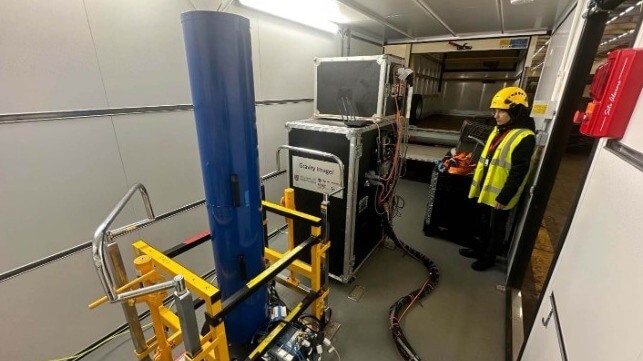The Royal Navy is Working on GPS-Free Quantum Navigation

The UK's military technology agency is working on a quantum navigation device - an inertial navigation system that could provide GPS-like accuracy for vessels at sea, without any reliance on external signals.
GPS has revolutionized the transportation economy, improving safety and efficiency while enabling new business models (like Uber). Modern shipping has come to rely heavily on GPS for navigation, collision avoidance and precision positioning. However, GPS is profoundly vulnerable to jamming by malicious actors, and it depends on the integrity of a satellite constellation. In the event of a severe solar flare event - or worse, a deliberate antisatellite attack - GPS navigation could be impaired.
Military operators often rely on inertial navigation technology to supplement GPS, particularly for mission-critical applications. Submarines, aircraft and cruise missiles use inertial guidance to offset the known vulnerabilities of GPS systems. However, inertial guidance systems are an advanced form of dead reckoning, and all have some degree of drift: the longer the platform operates without getting a firm fix, the less accurate the estimated position is.
Quantum navigation uses the same concept, but with far more precision. Quantum accelerometers are much more precise than the gyros traditionally used in inertial guidance, and if developed to operational readiness, UK defense researchers say that it could one day be used to provide GPS-free navigation.
Developed by researchers at Imperial College London in 2018, the quantum sensor uses a laser to measure the wave-like properties of ultracold atoms in a chamber. As the ship moves, the chamber moves, and the atoms inside have to move with it. Laser pulses track the movement of the atoms, and the data yields a precise record of the ship's accelerations.

that matters most
Get the latest maritime news delivered to your inbox daily.
The Imperial quantum sensor was tested aboard the Royal Navy research vessel XV Patrick Blackett in 2023, and it underwent more testing this year aboard the UK defense sealift ship Hurst Point. The UK Ministry of Defence is bullish on the prospects of maturing the system in the next round of testing.
“Quantum technologies have the potential to solve some of Defense’s most pressing problems, improve our operational advantage, and pave the way to new yet realized opportunities," said deputy chief technology officer Chester Butterworth in a statement. "We are advancing novel navigational techniques towards a fully resilient satellite-free capability.”
